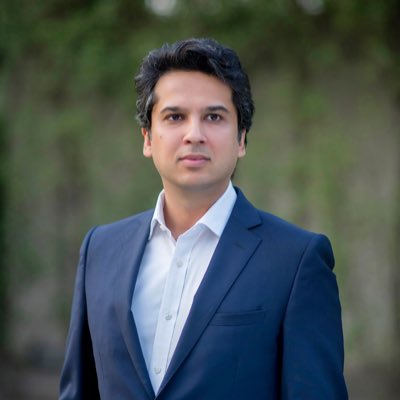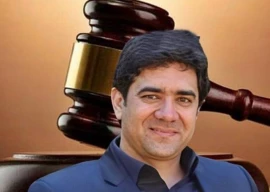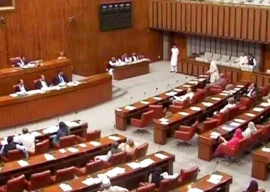
The opposition lawmakers created pandemonium during the session, tearing budget copies and chanting slogans against Prime Minister Imran Khan as well as the finance minister.
Of the total budget, an amount of Rs350 billion has been earmarked for development, while Rs1,298.80 billion has been allocated for total expenditures.
Out of the total development budget, 35% has been allocated for south Punjab with a claim that the amount will not be spent on other objectives.
An amount of Rs1.99 billion has been estimated to be garnered from general revenue receipts, while Rs1.60 billion income from the federal government under the National Finance Commission (NFC) Award.
The total expenditure for the next fiscal year has been fixed at Rs1,298.80 billion, of which, Rs337.6 billion is for salaries, Rs244.9 billion for pensions, Rs437.10 billion for local governments and Rs279.20 billion for service delivery expenditures.
The finance minister said the Pakistan Tehreek-e-Insaf (PTI) government had adopted austerity measures and increased expenditures by only 2.7% in the coming fiscal year as compared with the ongoing one. He termed the increase “minimum” in Punjab’s history.
Following the financial crises, the Punjab government earmarked Rs233 billion as surplus that would help in decreasing the national budget deficit.
The finance minister said, “There is a 47% increase in the development budget when compared with the last development budget.”
Elaborating on the development budget, he said Rs125 billion had been earmarked for the social sector, Rs88 billion for infrastructure development sector, Rs34 billion for the production sector, Rs21 billion for the services sector, Rs17 billion for other departments, Rs23 billion for special programmes and Rs42 billion for public private partnership.
New programmes
The Punjab government is also going to initiate for the first time a comprehensive ‘Punjab Ehsas Programme’.
Under this project, the government will start ‘Bahimmat Buzurg Programme’ for which an amount of Rs3 billion has been allocated.
A monthly allowance of Rs2,000 will be granted to 150,000 people whose age will be above 65.
Special persons
The government is going to start a programme with the title of ‘Hamqadam’ to support special persons.
For this programme, the government has allocated Rs3.50 billion and Rs2,000 will be given every month to 200,000 special persons.
An amount of Rs2 billion has been allocated for the ‘Sarparast Programme’ to provide financial support to widows and orphans. And Rs2,000 stipend will be given every month to the divorced women.
The government is going to start ‘Musawat Programme’ for eunuchs - a deprived segment of the society - and Rs200 million has been allocated for their welfare.
The government has allocated Rs100 million for ‘Nai Zindagi Programme’ to help the people who were victims of acid attacks. A five-year project is being launched with an amount of Rs8 billion to empower women economically.
The financial support for widows and orphans of those who lost their lives in terrorist attacks will be ensured under the Kharaj-e-Shuhada Programme until they become self-sufficient. An amount of Rs300 million has been allocated for the project.
Further, nine home shelters will be established at divisional headquarters in the next fiscal year.
An amount of Rs40 billion has been allocated for the establishment of nine modern hospitals in the Layyah, Lahore, Mianwali, Rahim Yar Khan, Rawalpindi, Bahawalpur, DG Khan, Multan and Rajanpur areas.
For the Sehat Insaf Card project, the government has earmarked Rs2 billion for it and the government is going to expand this programme to 36 districts.
An amount of Rs383 billion has been kept for the education sector. The amount is the highest ever allocated when compared with yesteryears.
Six new universities will be established in Murree, Chakwal, Mianwali, Bhakar and Rawalpindi. And Baba Guru Nanak University will also be established to provide best education to the minorities.
The finance minister said, “Sixty-three collages will be completed across the province with over Rs2 billion and Rs1.76 billion has been allocated for provision of best facilities in the collages.”
AN amount of Rs8 billion has been allocated for launching the Saaf Pani programme in rural and far-flung areas of the province.
Five million homes
As PM Imran claimed to construct five million homes for those who had none, the finance minister said the government “is going to construct 170,000 houses in the first three stages”.
For the agricultural sector, Rs40.76 billion has been allocated. The government is also going to establish Allama Iqbal Industrial City in Faisalabad with Rs23 billion.
For tourism, the Punjab government has announced establishing ‘Punjab Tourism Authority’ and the government is also going to open 177 rest houses of the Punjab government to the public.
As the finance minister started his budget speech, the opposition lawmakers stood up on their seats, demanding copies of the budget. They were provided the budget copies.
Then the opposition legislators gathered in front of the speaker’s dais and chanted slogans against PM Imran and the provincial government’ s budget.
The PTI women lawmakers carrying placards inscribed ‘jaali sher agea pinjaray k andar’ (fake tiger is in the cage) on them stood silent while opposition members tore budget copies and threw them towards the finance minister as well as Punjab Chief Minister Sardar Usman Buzdar.
They continued creating ruckus till the adjournment of the session.
Speaker Pervez Elahi adjourned the session till Monday 3pm after finance minister introduced the Punjab Finance Bill 2019.
Special Assistant to the Prime Minister on Information and Broadcasting Firdous Ashiq Awan applauded the budget, terming it a sigh of relief for the poor people and essential for putting the country on the right track.
Provincial Law Minister Raja Basharat termed the budget a milestone towards progress.
On the other hand, Opposition Leader in the Punjab Assembly Hamza Shehbaz termed the budget “disastrous for the poor”.
“With the addition of new taxes how can the life of the poor improve? This is not a pro-people budget,” said Hamza, adding that even barbers would have to pay 16% tax.
1725967717-0/Untitled-design-(3)1725967717-0-405x300.webp)

1725275251-0/Untitled-design-(3)1725275251-0-165x106.webp)

1720097164-0/BeFunky-collage-(9)1720097164-0-165x106.webp)
1730547935-0/Untitled-design-(5)1730547935-0-270x192.webp)

1730544105-0/Untitled-design-(87)1730544105-0-270x192.webp)

1730543683-0/Express-Tribune--(3)1730543683-0-270x192.webp)







COMMENTS
Comments are moderated and generally will be posted if they are on-topic and not abusive.
For more information, please see our Comments FAQ